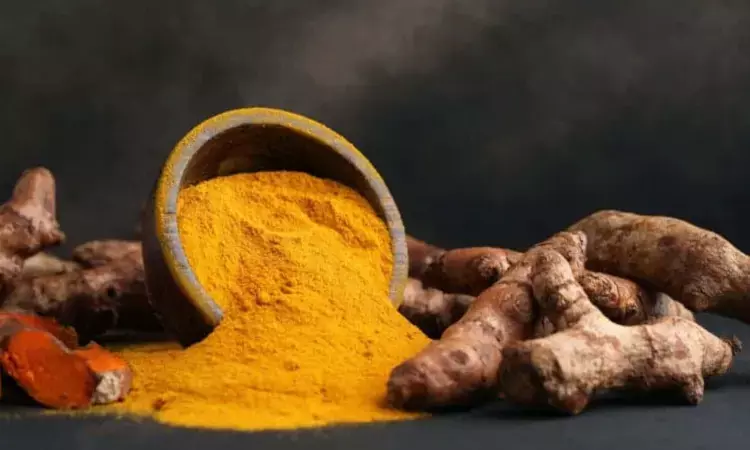- Home
- Medical news & Guidelines
- Anesthesiology
- Cardiology and CTVS
- Critical Care
- Dentistry
- Dermatology
- Diabetes and Endocrinology
- ENT
- Gastroenterology
- Medicine
- Nephrology
- Neurology
- Obstretics-Gynaecology
- Oncology
- Ophthalmology
- Orthopaedics
- Pediatrics-Neonatology
- Psychiatry
- Pulmonology
- Radiology
- Surgery
- Urology
- Laboratory Medicine
- Diet
- Nursing
- Paramedical
- Physiotherapy
- Health news
- Fact Check
- Bone Health Fact Check
- Brain Health Fact Check
- Cancer Related Fact Check
- Child Care Fact Check
- Dental and oral health fact check
- Diabetes and metabolic health fact check
- Diet and Nutrition Fact Check
- Eye and ENT Care Fact Check
- Fitness fact check
- Gut health fact check
- Heart health fact check
- Kidney health fact check
- Medical education fact check
- Men's health fact check
- Respiratory fact check
- Skin and hair care fact check
- Vaccine and Immunization fact check
- Women's health fact check
- AYUSH
- State News
- Andaman and Nicobar Islands
- Andhra Pradesh
- Arunachal Pradesh
- Assam
- Bihar
- Chandigarh
- Chattisgarh
- Dadra and Nagar Haveli
- Daman and Diu
- Delhi
- Goa
- Gujarat
- Haryana
- Himachal Pradesh
- Jammu & Kashmir
- Jharkhand
- Karnataka
- Kerala
- Ladakh
- Lakshadweep
- Madhya Pradesh
- Maharashtra
- Manipur
- Meghalaya
- Mizoram
- Nagaland
- Odisha
- Puducherry
- Punjab
- Rajasthan
- Sikkim
- Tamil Nadu
- Telangana
- Tripura
- Uttar Pradesh
- Uttrakhand
- West Bengal
- Medical Education
- Industry
Both Fenofibrate and Curcumin Improve Lipid and Inflammatory Markers in Type 2 Diabetes: Study

A new study published in the journal of BMC Pharmacology and Toxicology showed that both fenofibrate and curcumin effectively reduce lipid levels and improve inflammation in type 2 diabetes patients. However fenofibrate may offer additional benefits by more significantly reducing waist circumference, lowering fetuin-A levels, and increasing sirtuin levels.
One known risk factor for the onset of cardiovascular disease is type 2 diabetes. It was discovered that fenofibrate and curcumin were useful in reducing hyperlipidemia in diabetic individuals. This study compared the effects of adding fenofibrate against curcumin on weight, lipid profile, glycemic status, fetuin-A, high-sensitivity C-reactive protein (hs-CRP), and sirtuin 1, in patients with type 2 diabetes receiving glimepiride,.
3 groups of 60 individuals with type 2 diabetes mellitus were randomly assigned in this trial, where Group I received a placebo, Group II received 1100 mg of curcumin, and Group III received 160 mg of fenofibrate, all taken orally once daily. Glimepiride 4 mg was given orally once daily for three months.
The patients between the ages of 35 and 70, those with uncontrolled type 2 diabetes, those with hyperlipidemia, and those receiving glimepiride 4 mg were all eligible to participate. Other forms of diabetes, pregnancy, bad liver or kidney function tests, taking other anti-diabetic drugs, and non-adherence to treatment were among the exclusion criteria.
Anthropometric measures were taken at baseline and three months into the intervention, and blood samples were taken for biochemical examination of lipid profile, fetuin-A, sirtuin 1, glycated hemoglobin (HbA1c), blood glucose, hs-CRP, and fetuin. The body mass index, weight, two-hour postprandial glucose (2 h-PPG), fasting blood glucose, and HbA1c did not significantly differ among the three groups when compared 3 months after the intervention (p > 0.05).
The fenofibrate (p < 0.001) and curcumin (p < 0.05) groups showed significant reductions in triglycerides (TG), total cholesterol (TC), low-density lipoprotein cholesterol (LDL-C), very-low-density lipoprotein cholesterol (VLDL-C), non-high-density lipoprotein cholesterol (non-HDL-C), coronary risk index (CRI), atherogenic index (AI), and hs-CRP, while also increasing sirtuin 1.
The group that received fenofibrate had considerably greater levels of HDL-C than the group that received a placebo (p < 0.001). Also, fenofibrate significantly decreased waist circumferences and fetuin-A and elevated sirtuin 1 (p < 0.05) in comparison to curcumin.
Overall, in individuals with type II diabetes receiving glimepiride, the current trial demonstrated the significant advantages of adding fenofibrate as opposed to curcumin. When combined with glimepiride treatment, both medications improved the lipid profile, inflammatory markers, and glycemic picture.
Source:
Nada, E. M., El-Gharbawy, N. M., Abbas, H., & Werida, R. H. (2025). Effect of adding fenofibrate versus curcumin to glimepiride in patients with type 2 diabetes: a randomized controlled trial. BMC Pharmacology and Toxicology, 26(1), 119. https://doi.org/10.1186/s40360-025-00950-y
Neuroscience Masters graduate
Jacinthlyn Sylvia, a Neuroscience Master's graduate from Chennai has worked extensively in deciphering the neurobiology of cognition and motor control in aging. She also has spread-out exposure to Neurosurgery from her Bachelor’s. She is currently involved in active Neuro-Oncology research. She is an upcoming neuroscientist with a fiery passion for writing. Her news cover at Medical Dialogues feature recent discoveries and updates from the healthcare and biomedical research fields. She can be reached at editorial@medicaldialogues.in
Dr Kamal Kant Kohli-MBBS, DTCD- a chest specialist with more than 30 years of practice and a flair for writing clinical articles, Dr Kamal Kant Kohli joined Medical Dialogues as a Chief Editor of Medical News. Besides writing articles, as an editor, he proofreads and verifies all the medical content published on Medical Dialogues including those coming from journals, studies,medical conferences,guidelines etc. Email: drkohli@medicaldialogues.in. Contact no. 011-43720751


